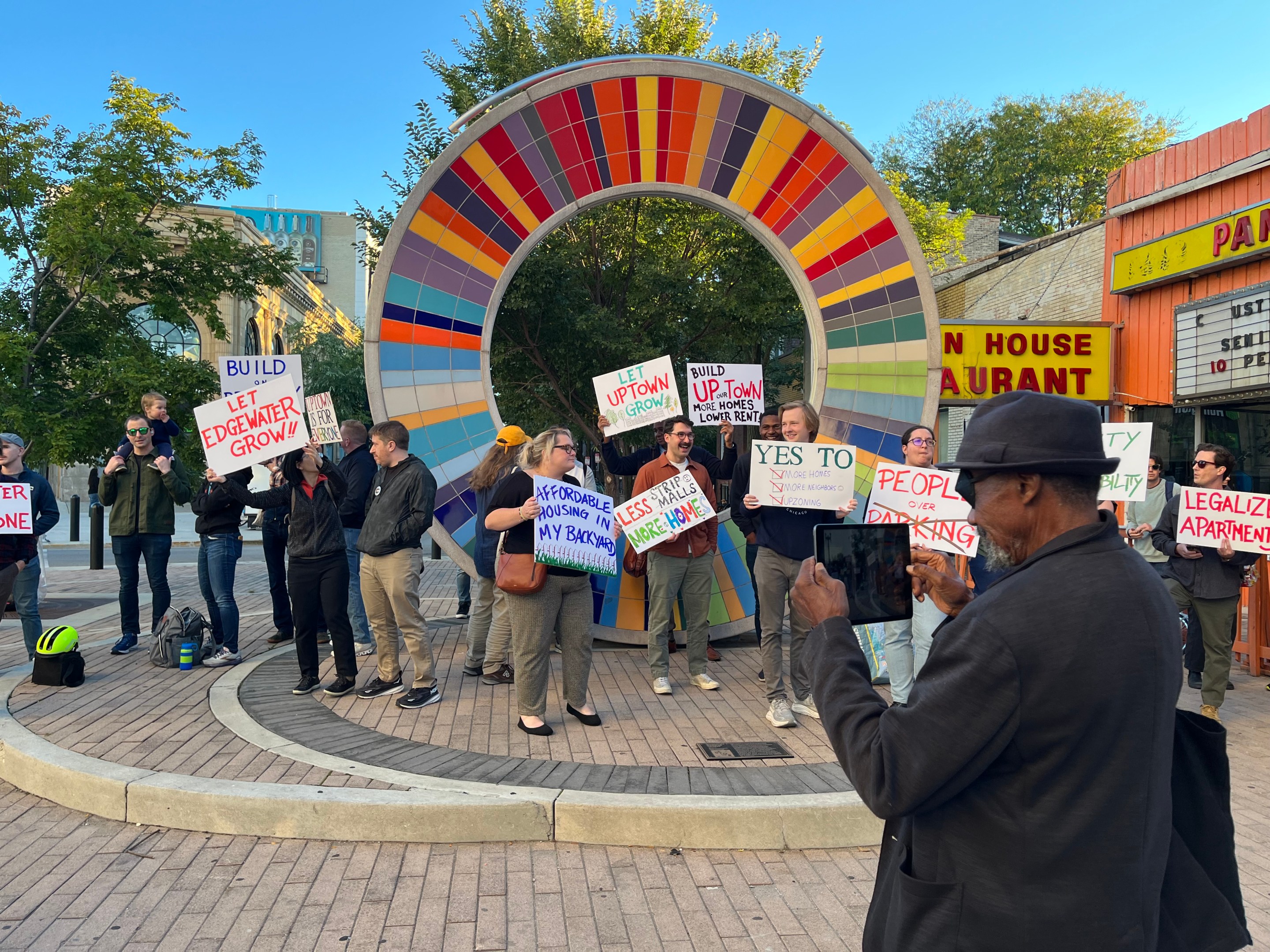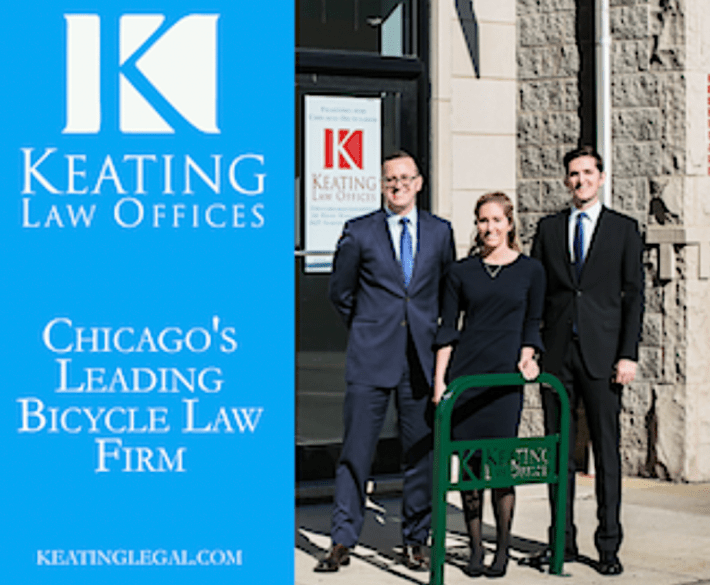
Judging from expensive-looking billboards prominently placed on Broadway in Uptown and Edgewater, you might assume these neighborhoods are dead-set against Broadway Upzoning.
That's the proposal to facilitate dense development, typically within a short walk of Red Line stations and bus stops, usually with 20 percent of the units designated as affordable, on Broadway between Devon and Montrose avenues. With support from local alders Angela Clay (46th), Matt Martin (47th), and Leni Manaa-Hoppenworth (48th), the plan is scheduled to go before City Hall's Zoning Committee on Tuesday, October 14. If it passes, the full Council may take a final vote on the measure as soon as that Thursday.
But some Not In My Back Yard types in these economically and racially diverse communities on the Far North Lakefront bought the advertisements, and have have tried to slow down approval of the zoning changes by hiring an attorney. The billboard at Argyle Street in Uptown asks, "Stuck in traffic? Can't find parking? 15,000 new residents won't help! Say no to upzoning." The other ad declares, "More high-rise buildings. Less quality living. Say no to upzoning."
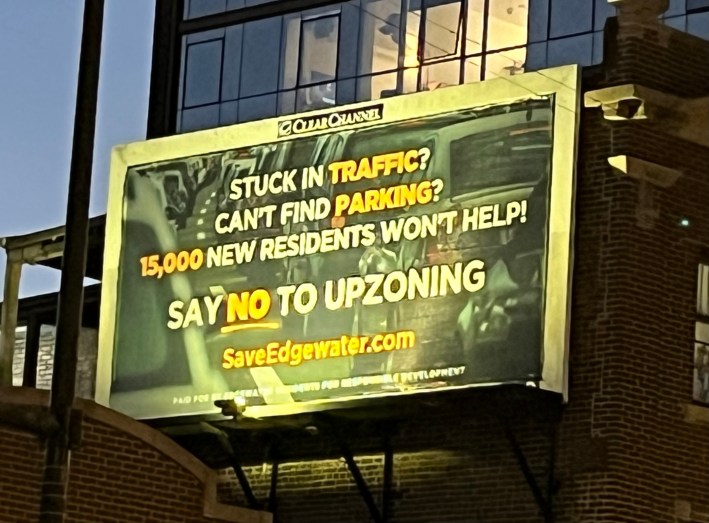
On the other hand, if you showed up for this evening's Build on Broadway rally hosted by Neighbors of Edgewater and Uptown, you saw dozens of upzoning fans, many of them holding signs in support of the proposal. Slogans included "Build on Broadway," "Uptown is for everyone" "Let Edgewater [or Uptown] grow!!!," "Build Up our Town, more homes, lower rent!!," "Affordable housing in my backyard," "People over parking," and "Density = Affordability."
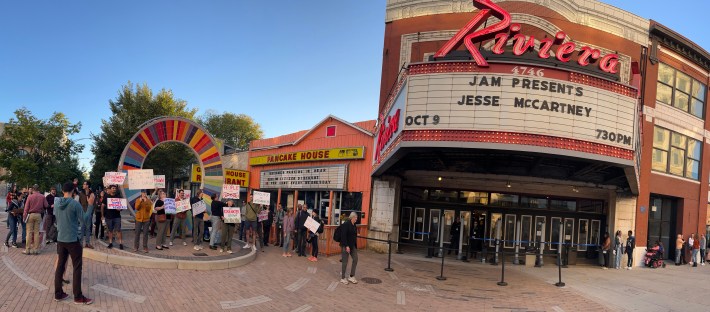
NOEU member Noah Ayoub, who helped organize the event, explained to me why he's passionate about this issue. "When the Supreme Court said that racial covenants were illegal, then communities took to using restrictive zoning to keep people they deem undesirable out of their neighborhoods," he said. "This upzoning is, in a sense, restorative justice, in fixing that harm that we have been doing for generations. It's an embrace of much-needed change, of growth and of welcoming new neighbors, especially providing affordable housing and preventing further displacement."
What's his response to the NIMBY argument that allowing additional "high-rises," as the billboard called them, would lead to more traffic jams and parking crunches? "First of all, they're at most going to be seven or eight stories tall," Ayoub responded. "And the fact that the City of Chicago has abolished parking minimums in the majority of area zoned for residential means that developers will be more incentivized to build less parking. We are next to the Red Line, the highest ridership 'L' line the entire city. There are tens of thousands of people that are craving a car-lite or car-free lifestyle. 38.5 percent of [households] in Edgewater don't own a car." He noted that another 46.7 percent have only one car.
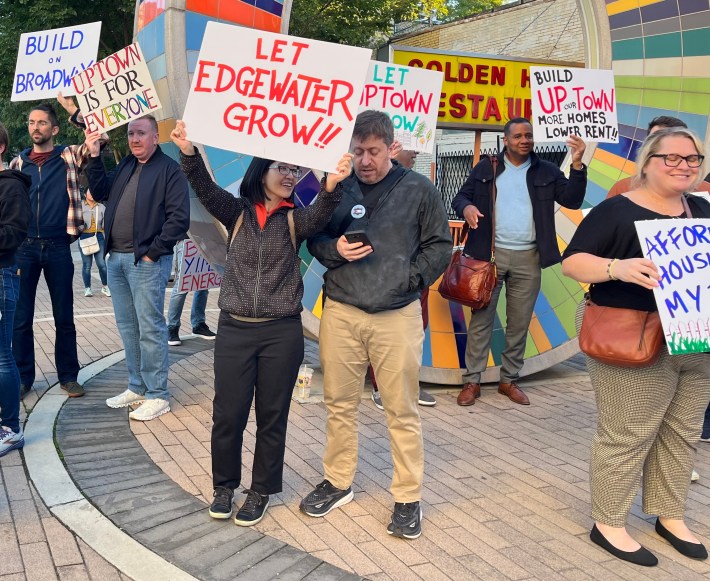
"With the Red Line, with the fact there are so many high-frequency buses like the 36 [Broadway] and the 151 [Sheridan] buses, that means people are more likely to take transit. But it also means that if we build more homes, people who work in the neighborhood can afford to move to the neighborhood, so they're going to be driving even less."
John Holden, part of the Edgewater Residents for Responsible Development NIMBY group that purchased the billboards, showed up to the rally to heckle it. "We are tired of your bad-faith arguments and we're tired of you trying to control the narrative," Ayoub responded. "Fear-mongering won't work here."
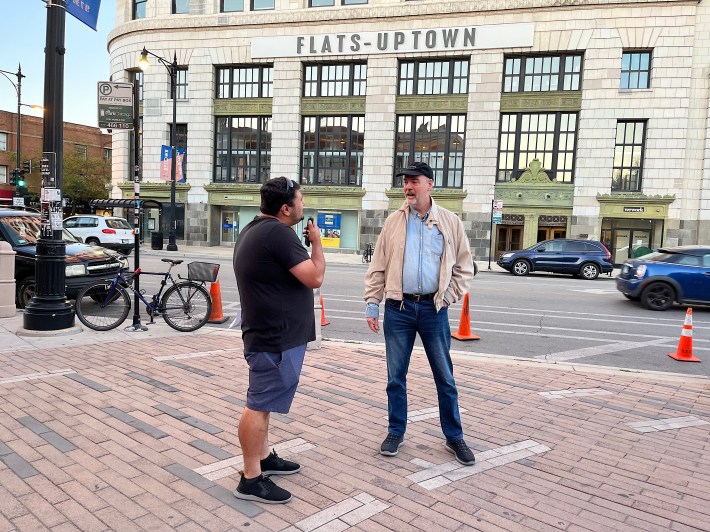
"I'm advocating for historic buildings, that's all I'm advocating for," insisted Holden, president of the Edgewater Historical Society.
"We have provisions for saving historic buildings already!" someone shouted. It's also worth noting that Broadway's many existing parking lots and strip malls would generally be much cheaper, and therefore more attractive, properties for developers to purchase.
Ayoub ultimately let Holden say his piece over the PA system. "I'm advocating for about a third of the property on Broadway that has important buildings that are worth saving and keeping them affordable, that's it," Holden concluded.
"So let's upzone the whole thing and save them!" a person called out. The crowd cheered, and Holden soon left the rally.
Here are some more of the rally speakers and attendees who voiced support for Broadway Upzoning. All images by yours truly.

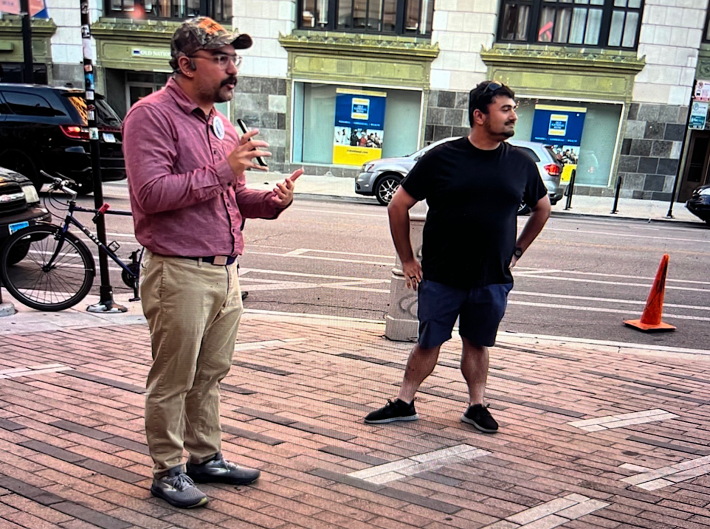
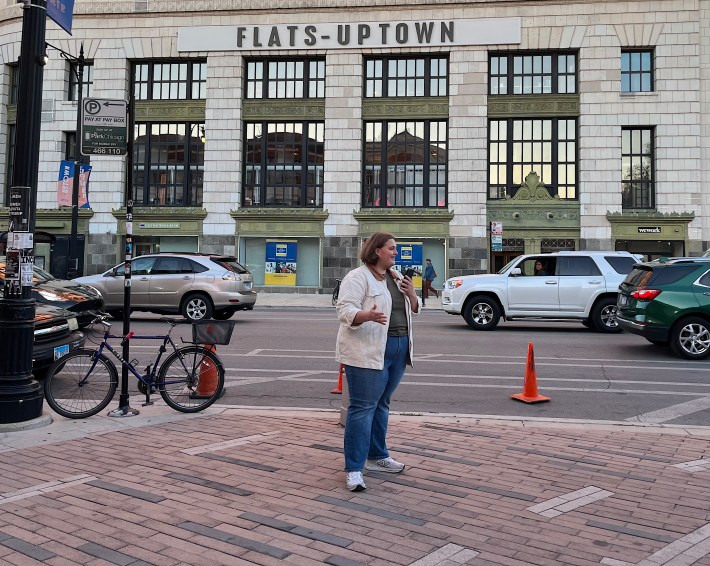
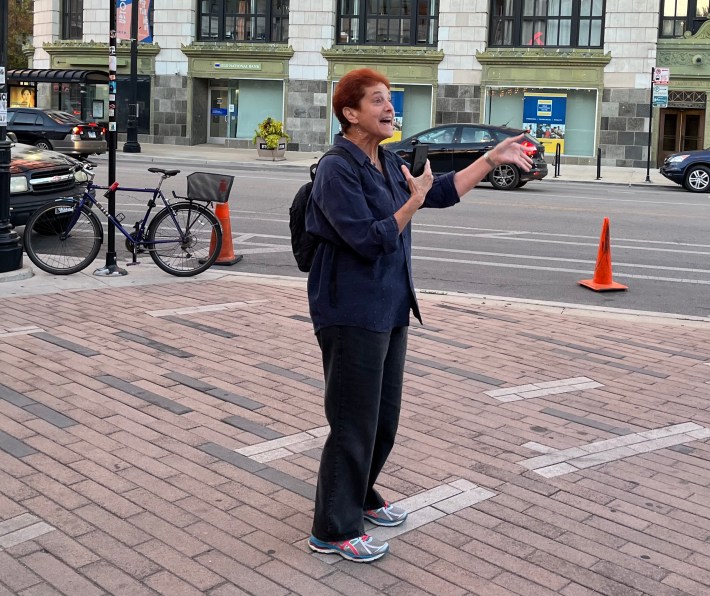
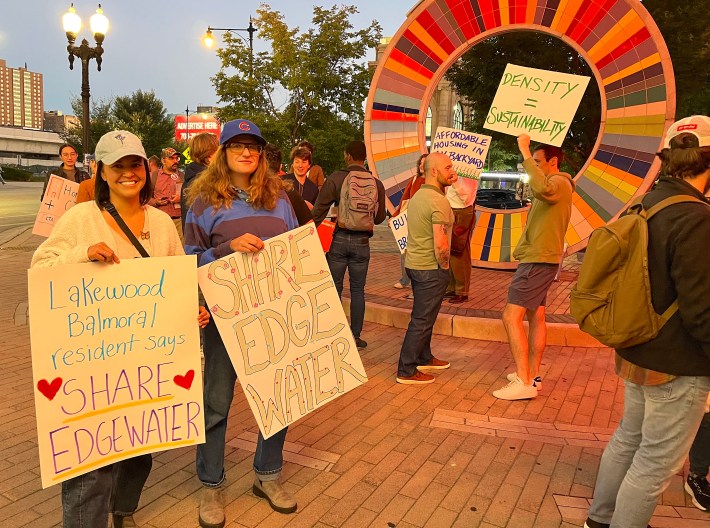
Read Richard Day's previous discussion of the Broadway Upzoning proposal on Streetsblog Chicago.

Do you appreciate Streetsblog Chicago's paywall-free sustainable transportation reporting and advocacy? We officially ended our 2024-25 fund drive in July, but we still need $42.5K+ to keep publishing at full strength in 2026. We'd appreciate any leads on potential major donors or grants. And if you haven't already, please consider making a tax-deductible donation to help us continue producing SBC next year. Thanks!
